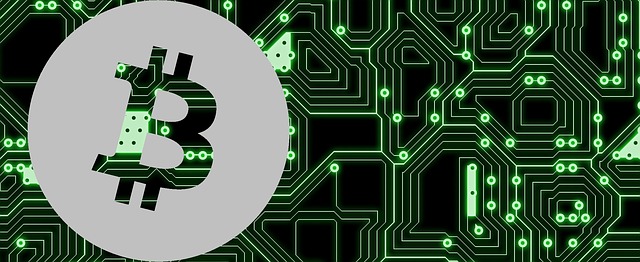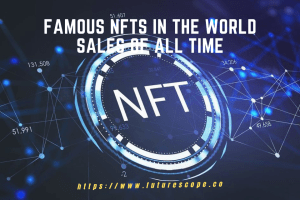What We Have Covered in This Article
Last Updated on July 11, 2018 by Editor Futurescope
We explain what the Bitcoin digital currency is, how to get it, where to use it and how it works.
The virtual currency bitcoin again in limelight these days by the WannaCry, the ransomware that was unleashed the past 12 of May and got to infect to more than 200,000 computers in more than 150 countries. With this virus, its creators expected to get up to $ 1 billion, since access to computers infected with malware had to pay a $ 300 bailout … in bitcoin. But what exactly is bitcoin and how does it work? Here we tell you everything you need to know about this digital currency, how to obtain it and where to use it.
What is bitcoin?
Bitcoin is a digital currency or crypto-currency that can be used to exchange goods and services like any other currency where it is accepted. The symbol bitcoin and abbreviation BTC, is a free and decentralized electronic currency that allows direct transaction without any intermediary. Also known as Bitcoin is the network or protocol that supports the currency.
It is presumed that this cryptocurrency was created in 2009 by one – or several – persons under the alias of Satoshi Nakamoto. Even though in 2016 Australian entrepreneur Craig Steven Wright said he was the creator of the digital currency, he did not provide evidence to prove it, so the true identity of the creator of bitcoin is unknown so far.
It is considered a currency such as the dollar or the euro, and uses a Peer to Peer or P2P protocol for its acronym in English. It is a completely virtual currency, which makes it ideal for international transactions and payments, as it is not tied to any country or regulatory body. With this currency there are no transfer charges, as it is not regulated by a bank or government. Similarly, transactions do not require intermediaries and the protocol is open source.
One of the most attractive features of bitcoin is the anonymity surrounding this currency, since unlike bank accounts and other payment platforms, bitcoin and transactions in this currency are not related to the user’s identity.
The characteristics of this cryptocurrency make it ideal for illegal transactions, as it was in the case of the already closed website Silk Road that was used to buy illegal drugs like cocaine and heroin. However, the anonymity of bitcoin is not entirely unbreakable as there are several possibilities of tracking transactions.
Although Bitcoin was the first crypto coin to appear, later there are many others. It remains the most popular although lately others like Ethereum are rising in value for other value added services they offer.
Basic principles of bitcoin
To avoid problems arising from a currency that is not supported by an entity or a third party, but by a system of work, the BTC has several fundamental principles:
- Limit 21 million: The number of units can never exceed 21 million bitcoins.
- You cannot stop: No one can ban or censor transactions that have been validated.
- Open source platform: The source code used by Bitcoin should always be accessible to everyone.
- Access to all: All can make bitcoins transactions without the need for a permit. No one can prevent participation in the network.
- It uses pseudonyms: It does not reflect the real identity of its owner and it is not necessary to identify itself to participate in the network Bitcoin, although unlike an anonymous network, it allows the possibility to generate a reputation and trust between the different users.
- It is fungible: All units are interchangeable.
- Payments are irreversible: Transactions that have been confirmed can’t be modified or eliminated.
How are bitcoins created?
Bitcoin is a crypto-coin that is created and distributed by peer networks, commonly known as P2P (peer to peer), that allow the direct exchange of information without the need for fixed servers. The process of generating BTC is through mining and consists of solving mathematical problems of high difficulty by computer processors.
The person who solves a problem receives in exchange a reward in BTC, this incentive causes more people to join this process. As each participant’s team in this structure is connected to each other through the P2P system and validate each movement in the system, the more participants the more secure the process. On the other hand, as the problems are solved, the difficulty increases, thus controlling the rate of BTC generation.
The bitcoin, as explained above, is not regulated by any organism, however, it is programmed so that the generation rate is reduced by 50% every 4 years to reach the 21 million BTC in circulation. To give us an idea today June 6, 2017 the total outstanding BTC is 16,374,425 (source blockchain.info).
What is the “bitcoin address” or bitcoin address?
Bitcoin addresses are like email addresses. As with e-mail, you just need to know someone else’s Bitcoin address so that you can send them a payment. A Bitcoin address, or simply address, is an identifier of 27 to 34 alphanumeric characters, starting with the number 1 or 3, which represents a destination of a payment in bitcoins.
Cryptocurrencies once obtained are stored in wallets or virtual wallets containing two registers: public (hash) and private. The private key is that piece of data that contains proof that you can use your Bitcoin through an encrypted signature. Each Bitcoin Address has a unique key, which is stored in our computers, specifically in the folder created by the software while the public one (hash) is that registered in the blockchain; other key is unique and should not be disclosed by the user.
A Bitcoin address consists of 34 alphanumeric characters containing a 160-digit hash which is a portion of the public-private key of the Elliptic Curve Cryptography (ECDSA). A Bitcoin address looks like this: 12C7wnzBvv8tyKtYexmCAcsByBZA3Fjc3Q
Each Bitcoin address is associated with a private key, stored in the purse file of the person holding the balance. The private key is mathematically related to the Bitcoin address, such that the Bitcoin address is derived from the private key following fixed rules, while the reverse operation, deriving a private key from the Bitcoin address, is impossible.
Since private keys are the key to spending bitcoins, it is imperative to keep them safe.
How to get bitcoin?
Bitcoins can be obtained as payment for services or goods. They can also be bought or traded on websites that specialize in the sale and exchange of this currency. One of the most popular websites for obtaining bitcoins is Coinbase, in which you can buy bitcoins using dollars and other currencies. This site can also be used to sell bitcoins. At the end of this edition, the current value of a bitcoin was US $ 2,786, a value that represents its highest point since it was created in 2009 and was valued at a quarter of a US cent.
Another alternative to getting bitcoins is through what is known as bitcoin mining. According to Bitcoin.org, this modality consists of solving mathematical problems in exchange for bitcoin. Mining is crucial as miners use their computers to approve bitcoin transactions and keep the bitcoin network secure. Anyone can become a miner but must have specialized software and hardware. The miners are a group of people who are engaged in processing transactions and in exchange for this work they receive bitcoin. During mining new bitcoin is created.
Where to use bitcoin?
Once you have bitcoin, you can use it to buy on the Internet or you can save it in your wallet. A purse is a database that you can store on your phone, computer or tablet. There are several mobile applications that you can download and use as a wallet, but experts advise using a wallet that is not online to prevent you from being hacked. Some of the applications for making payments using bitcoin are BitPay and Bitcoin Checkout. The number of companies and services that accept this currency as a form of payment has been growing in recent years. For example, Microsoft lets you buy mobile applications, games, and digital content for Windows and Xbox with bitcoins. Dell, Expedia and WordPress also accept this digital currency. Although Bitcoin is not the only available crypto coin, it is the most popular and continues to talk not only because it is preferred by hackers but also because of its attractive value.
Bitcoin, how to save them
Now we come to the big question: how and where are the Bitcoin kept? Well, cryptocurrencies like Bitcoin are completely virtual. To access them originally had to use a software. This software allows us to see the balance we have in our account and make and receive transfers.
The good thing about Bitcoin is that it is an open protocol, there are many software to manage our money. What’s in it for Windows, Linux, Mac, Android, iOS …
However using a software has a danger. If for some reason our device is damaged or deleted or formatted, we will lose all the money. Let’s say that with Bitcoin the money is in “the cloud of Bitcoin” (the so-called Blockchain) and what keeps the software is a copy of the key to access it. If we use software it is convenient to make a backup of these keys.
Another option to take control of our Bitcoin is to use a wallet or web wallet (bitcoin wallet). In this way a web page is responsible for storing our keys and access our accounts with a user and password.
Basically these websites do is the function of a bank.
Personally recommend Blockchain as it is the most popular and secure online wallet today.
Coinbase is another good option for this, since it also allows to buy and sell Bitcoins.
It is also advisable to take it as an application in the mobile as it will be very useful to manage purchases and payments directly. Inside Android the best wallets are those of Blockchain and Coinbase.
The only bad thing is that if we use this method we lose part of the grace of having Bitcoins, using a completely decentralized system without relying on trust in any entity. No one can seize our money without stealing our keys. Instead if we have the money in a web we have to trust it.
I want to start using bitcoins already, what should I do?
In short, to start operating with bitcoins you only have to follow three steps:
Turn your money into bitcoins through a change site.
Keep them in our virtual wallet created on one of the many free servers that exist. For example, blockchain. The wallet is a random combination of 33 alphanumeric characters similar to this: 1VthJ8MsQ47rQqsGvvMtw89TW5XT2dL7f9
You can now pay and collect on BTC! To pay, you only have to log in with your username and password to your electronic wallet and enter the recipient’s wallet code and the corresponding amount. While to collect, all you need is to provide your code to the person who must make the payment.
Bitcoin, final considerations
Now it may seem that Bitcoin is very expensive, (more than $ 2700 at the time of writing these lines). And that is not a good time to invest in it. But in the past we have seen similar moments, and the advice should be the same: be careful because it is a pretty speculative good.
Bitcoin has suffered many bumps along the way. The first was the closing of Silk Road, a market of illegal exchanges that the FBI closed in 2013. Transactions were made with Bitcoins and the price collapsed.
Just a year later the world’s largest Bitcoin exchange, MTGox, was attacked and stolen 744,000 Bitcoins from its users. Soon he had to close. Again the price went down.
But Bitcoin was not a fad. And although it still has many challenges ahead, it has managed to overcome every difficulty. So you have to take it into account in the future, either as an asset or as a currency to pay.
For more visit more to know about Bitcoin vs Ethereum









